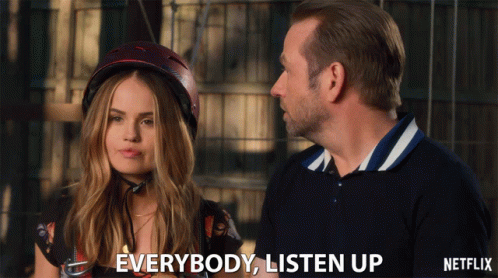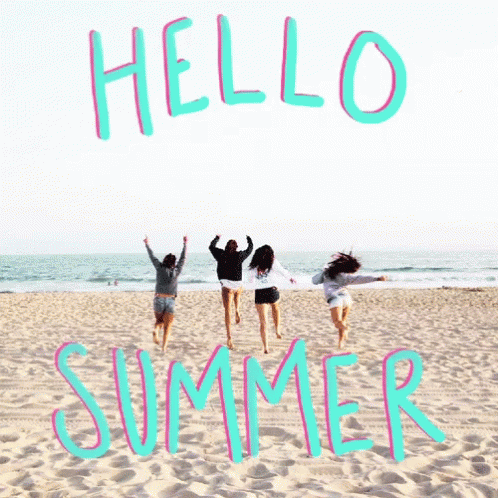Happy Friday! I can’t believe that summer is just a few weeks away. Hell, I can’t believe that 2024 is almost halfway over. Time is flying by. I feel like January was just a few weeks ago, but I guess that’s what happens when you’re busy. And I’ve been extremely busy this year.
My fictional people have been keeping me on my toes. I’ve been writing, rewriting, revising, and researching—not to mention planning another secret project. But I’m not complaining. 2024 is probably one of the best writing years I’ve had in a long time. So, I’ll take it. I’m just hoping to keep this momentum going for the rest of the year and beyond.
And I would love to talk some more about my writing projects, but tonight I’m going to switch things up. Tonight, I’m going to talk about Polish culture. I want to talk about common misconceptions, mistakes, stereotypes, and share some random, but fun tidbits.
The reason I’m doing this blog is because of the conversations I had over the holiday weekend. I was chatting with family and friends, and we were talking about how Slavic fantasy—particularly Polish fantasy—seems to be growing in popularity. It seems like everyone is hopping on the trend lately.
As we were chatting around the fire last weekend, we talked about the mistakes many non-Polish writers make when writing about a culture they know next to nothing about. And these mistakes aren’t just limited to books. They’re happening in all aspects of media including TV and movies too. And those mistakes annoy the living fuck out of us. So, I’m going to address these common misconceptions tonight.
But before I dive in, I need to mention a couple of things. One, the Internet does not trump real-life experiences. Ever. Don’t come to me—or any other Polish person—and tell them they’re wrong because of what you read on the Internet. The Internet is filled with misinformation and no amount of research will ever equate with actual lived experiences.
Two, everyone’s life experiences are different. And that’s okay. That’s normal. Just because something didn’t happen to you or your friends or family, doesn’t mean it didn’t happen. It doesn’t mean that someone’s experience is wrong—or that the person is lying. All it means is that their experience or situation is different than yours. Simple as that. Be mindful and be respectful when others are sharing their stories.

Common Mistakes
The biggest mistakes we see are in names, spelling, language, grammar, and translations. And it’s not surprising. Polish is a hard language to learn and master. It’s complex with lots of grammar rules, word variations, diminutives, gendered nouns, conjugations, and so much more. You’re not going to master Polish via translation software. Sorry. Not sorry.
Names. So many people confuse Polish names with other Slavic names, or they misspell them completely. It was one of the top pet peeves among our group. I think there are a couple of reasons for these mistakes. One, people aren’t familiar with the Polish alphabet. Two, they use baby name websites—which aren’t always wholly accurate when it comes to spelling and name origins—without doing thorough research.
Also, many of us get annoyed when people anglicize Polish names and/or make up their own diminutives of those names. We realize that some of our names are long and difficult to pronounce, but don’t just go and make up your own version of a nickname because you don’t want to spell it out. It makes you look lazy.
Now, there are times when it’s okay to anglicize a name. If your Polish character was born in the U.S., then it would make sense for their name to be anglicized. Some parents do this to make it easier for their children to assimilate in the States. Also, our American friends might anglicize our nicknames and they stick. It happens.
But, if your character was born in Poland, lives in Poland, and speaks Polish, then there is absolutely no reason to anglicize their name. None. It doesn’t make any damn sense.
Misspellings. If you are writing from a Polish character’s perspective in Polish, make sure you get the spelling right. Take your time to learn the language and don’t just rely solely on translation software.
Language, Grammar, and Translations. It’s obvious when a writer has taken a common American phrase and translated it into Polish. Casual conversations and dialogue often sound stiff and wooden. Conversations should never sound mechanical. And that’s usually what happens when you run whole-ass English phrases and paragraphs through translation software. It takes the literal definitions (often too literal and/or wrong) and spits them out.
Another thing to remember is that not everyone speaks like Americans. Some American phrases and sayings just don’t translate well—or at all—when it comes to Polish. The best thing to do in these situations is to either learn the language or just write “said in Polish.”
It’s one thing when you’re learning Polish for personal reasons, like travel. We’ll give you props for your efforts. But it’s another ballgame when you’re writing from a Polish character’s perspective. That’s where the grace period ends.
And if you want to learn Polish, learn the alphabet, and learn how each letter sounds. It’s a great way to start, and then you can build up from there.

Common Misconceptions and Harmful Stereotypes
Polish People are Dumb. You want to piss off a Polish person? Call us dumb. It’s a great way to get your ass handed to you on a silver platter. Polish people aren’t dumb. In fact, we’re far from it. Many of us are highly educated and most Polish people I know excelled in school.
So to insinuate that all Poles are stupid is not only ignorant and insulting, but it’s also dehumanizing. It’s not funny. It’s not a joke. It’s an old and overplayed stereotype that needs to die. If you’re a writer—or anyone still spewing this bullshit, fuck off.
The Crazy Polish Guy. This stupid stereotype is often geared towards men, but women aren’t completely immune to it either. I’m not sure why people are fond of this one, but it’s fucking annoying. Polish people are not insane. We’re not unhinged. I know you’ve seen this stereotype before and think it’s funny, but it’s not. That’s not how Polish people act.
Sure, we can act silly and wild, especially after having a few drinks, but that’s not just Polish culture. It happens in other cultures too. So to suggest that Poles aren’t of sound mind is as ignorant as it is insulting. And if you’re still using this old, overworked cliché then it just proves you know fuck all about Polish people and our culture.
Polish People are Rude. Most Poles aren’t rude—at least we try not to be. But Polish people tend to be blunt and straightforward. Many of us are pretty candid about our opinions. So, if you ask for advice or our thoughts on a matter, don’t expect it to be sugarcoated.
Polish People are Drunks. Newsflash, not all Poles drink alcohol. And those who do drink don’t always get completely inebriated. Just because we indulge sometimes, doesn’t mean we’re all sloppy drunks. We know our limits. And many times, we just like to sit down with our friends and enjoy a glass of wine or a cold beer or two.
Vodka Runs Through Our Bloodstream. Vodka is not the only alcoholic beverage in Poland, nor does it pump through our veins. Shocking, right? 🙄 Polish people enjoy a wide variety of drinks including wine, beer, cocktails, and nonalcoholic beverages such as tea, coffee, juice, and more.
It’s important to remember that Polish people don’t come in a one-size-fits-all. Like with any culture, we have a vast array of personalities and traits. Some of us are warm, friendly, and outgoing. Others are more reserved and introverted. That’s why stereotypes are harmful, hurtful, and need to be permanently retired.

Random Facts and Fun Tidbits
Family. Family is extremely important to many Polish people and many Polish families are tightknit. I’m not just talking about immediate family. I’m talking about extended family—aunts, uncles, cousins, nieces, nephews, grandparents, and more. Our home was always overflowing with family, and it wasn’t just for holidays or special occasions. We used to have dinner together all the time.
And not just that, but my aunts, uncles, and cousins were very involved in my upbringing. I always had someone around, or someone to go to if and when I needed. And that still seems to be the norm, at least in my circle of friends and relatives.
Parents. Parents tend to be very involved in their children’s lives, extending into adulthood. They’re close with their children and their children’s family, often supporting them and helping them out however they can.
Polish parents love giving advice, even if it’s not warranted. Many parents are quite candid, and they’re not scared to share their opinions. If they don’t like something you’ve done, you’ll know it. If they don’t like your significant other or one of your friends, they’ll not only tell you so, but they’ll list all the reasons why as well.
Some parents can be controlling and overbearing, expecting their kids to always obey them. No excuses. While other parents tend to be more lenient and laidback.
It’s important to remember that parenting styles are dependent on the individual and the generation. Certain generations are stricter than others, adhering to traditional gender and parenting roles. So, keep that in mind if you’re writing from a Polish POV.
Appearances. Appearances are important to Polish people. You won’t find many of us rolling out of bed, looking like a hot mess, and going shopping. Not unless it’s an emergency. Now, that doesn’t mean we always doll ourselves up for a quick errand run, but we do try and look somewhat presentable because “you never know who you’ll run into.” And impressions are important to Poles.
Home. The Polish home is always neat, organized, and tidy. You won’t find a spec of dust or dirt anywhere—at least, not intentionally. When you go to a Polish person’s house, it’s customary to take off your shoes, unless directed otherwise. Poles often have slippers available which you can wear while you’re visiting.
Also, when you go to a Polish person’s home, the hosts will always offer you food and drinks. And even if you turn the food down, don’t be surprised if they still put out a platter of snacks (przekąski) just in case you change your mind. Polish people are very hospitable and enjoy catering to their guests.
Parties. Polish people love a good party. If you attend a Polish party, you will never be bored, you will never be hungry, and you will never be parched. When Polish people throw a party, we make sure to have plenty of food and drinks on hand. We usually have some kind of buffet or food table set up, along with a makeshift mini bar—or regular bar with plenty of alcoholic and non-alcoholic beverages to choose from.
And one thing about us Poles, is that you won’t find us sitting around on our asses drinking and playing cards. Nope. Music is a staple at Polish parties. And where there’s music, there is dancing, and plenty of it. It’s not a true Polish party without music and dancing.
Always remember to be mindful of other cultures and cultural differences. If you’re a writer writing outside of your own cultural experiences, then my advice is to hire a sensitivity reader.

Update
Ryan’s character blog is coming up next and is still on schedule to be posted on the weekend of June 28th. The new Summer Blog Schedule will be posted by next Friday. You’ll be able to find that under the Announcements section.
New character bios have been posted and updated. Nick, Karina, Ryan, and Ash all have updated bios, while Stavros, Alaina, Darek, and Ewelina have new bios posted under the Magic and Medicine section. I will continue updating and posting new character bios throughout the year.
A new life bite is coming next weekend, so keep your eyes open for that. I’ll also be posting new character mood boards soon, which you’ll be able to find under the Pictures menu. New character interviews are also coming, but they won’t be posted until later this year.
That’s all I have for you today. I hope you all have a happy and fun-filled summer. As always, stay safe and stay healthy. Until next time.
Cheers,
Amelia

© Copyright 2024 Amelia Kayne | All Rights Reserved





Very informative blog. You do see a lot of that in all types of media.
Thank you!
DUDE, these are all spot on!!! Tho me and my family call each other crazy, but we get a pass since we’re all Polish and related, hahaha!!! 😜😝
Where’s Disco Polo???? No mention of “‘Jesteś Szalona” anywhere, hahaha. 😜
YES!! Same, lol!! Us Poles can get away with calling each other crazy, especially when it comes to our close family & friends, lol. Anyone else? Not so much.
I decided to save it for another blog. This one is wordy enough as it is, lol. 😂
Not so much??? More like not at all, haha. 😜 ISTFG I will blacklist anyone (other than Poles) who calls Polish people crazy or stupid. Like it legit pisses me off.
Your blog doesn’t seem that long. I was only asking because I went to a wedding and ofc they played Disco Polo, hahahaha! 😜😝
Yup. Hard same. I get so fucking angry whenever I see or hear that shit. It makes my blood boil. It’s just bad form to shit talk another culture like that.
It’s over 2k, lol. 😅 And of course they played Disco Polo. It wouldn’t be a Polish wedding without it, lol! 😁
ISTFG I could rant about this shit for days, haha. They call us stupid and crazy, but still write us into their stories because being Polish is now trendy and cool. Like GTFO, haha.
Right?!? If you don’t hear “Jesteś Szalona” or “Hej Sokoły” then it’s not a true Polish wedding, hahaha. 😝😜
Exactly!! Hit the nail on the head, lol.
LOL!!! So true. “Hej Sokoły” is a must at a Polish wedding, lol! 😁
OMFG!!! Aria sounds exactly like my sister, hahahaha!!! 😝 I feel Nick’s pain, hahaha!!!😜
You should have a comments section under your Life Bites. I would abuse the fuck out of it, hahaha!!😘😜
I channeled my inner teenager for that one, lol. Raising a teenage girl isn’t easy, but Nick does his best–even if he does get frustrated at times. 😅
LOL!!! I’m sure you would!😂🥰 I’m not even sure if it’s feasible. Think I’ll just stick with the blog comments for now. 😁
Nailed it!!! Aria sounds just like a teenage girl, hahaha!!! Nick’s waaaaaaay more patient with his sister than I ever was with mine, hahaha. 😜😝
Ahhh, no worries. I’ll just harass the shit out of you and your characters here, hahaha!! 😘🥰😜
Thanks! 🥰😁 Nick’s pretty patient overall–at least on the surface, lol.
Thanks, lol!!! Though TBH, I don’t mind your particular brand of harassment. 🥰😘😁
Nick needs to teach me his ways! My patience is nonexistence, hahaha!!! 😜🤪
Good! Because I don’t plan on stopping!!! 😜😘
You don’t say, lol 😅😘
Happy to hear it, lol!!! 🥰😁